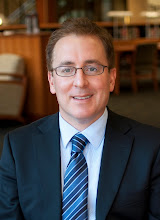This story in the
N.Y. Times, which reports on a small public protest in Moscow, demonstrates both the importance of public contention to speakers and the threat such assemblies can pose to authorities. The right of assembly is guaranteed in the Russian constitution. But this is a mere parchment guarantee. Protesters are routinely arrested and dealt with harshly by authorities:
In the past year, Russia’s leaders have been forced to discuss this group of protesters regularly. In an interview with the newspaper Kommersant in August, Prime Minister Vladimir V. Putin said that if they gathered without sanction, “They will be bashed on the head with a club,” and that a softer government position would only embolden them.
“If the objective is forcing concessions on the powers that be, and if the powers that be do buckle under, then provocations will be endless,” he said. “They will be staged again and again.”
But times may be changing. At least so long as the protests remain relatively small and non-violent, the authorities may be willing to permit some public contention:
But in mid-October, Vladislav Surkov, the deputy director of the presidential administration, said he saw little threat in allowing the event, remarking that the regular confrontations had become “a sort of burlesque.”
“If in Moscow, a city of many millions, 200 people want to gather exactly on the 31st, exactly on Triumphal Square, in these modest numbers, let them gather,” he said in an interview. “I am sure the new mayor will make the right decision. And it will be a decision in the spirit of the president’s policies.”


No comments:
Post a Comment